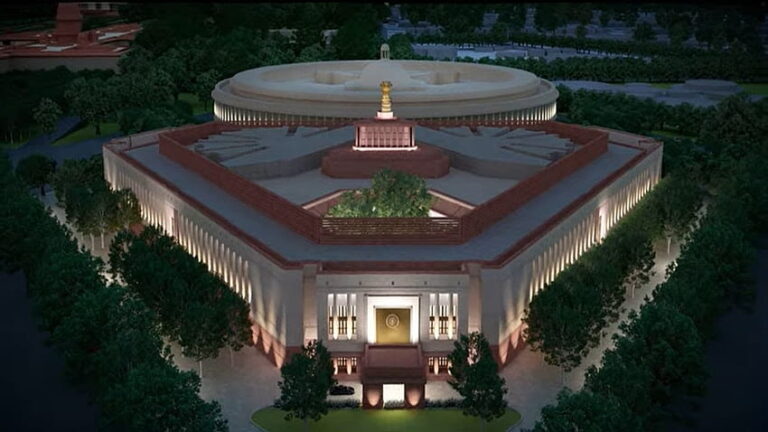
August 17, 2023
“Bharat’s ‘s Bold Move to Replace Colonial Laws”
In a groundbreaking move, India’s Home Minister Amit Shah has introduced three bills aimed at overhauling the country’s legal landscape. These bills propose to replace the Indian Penal Code (IPC), the Code of Criminal Procedure (CrPC), and the Indian Evidence Act. This ambitious legislative step has garnered attention and has become the topic of debate across the nation, as it promises to reshape the way crimes are defined, procedures are conducted, and evidence is presented in courts.
Aim ₰ Need for Reform:
The changing society, technological advancements, and evolving legal standards have underscored the necessity for a comprehensive revaluation. The existing legal framework of the IPC, CrPC, and the Evidence Act, has been in place form colonial rule. From 1860 to 2023, the country’s criminal justice system functioned as per the laws made by the British. Home Minister Amit Shah’s mentioned these issues in Lok Sabha while introducing three bills to change British-era laws on 11 August, 2023. The focus of colonial law was to protect and strengthen the British administration, the idea was to punish and not to give justice. The aim of this new framework is not be to punish, it will be to provide justice. Punishment will be given to create a sentiment of stopping crime.
The Revised Laws:
While introducing this bill in parliament, HMs said that, the following three bills would overhaul India’s criminal justice system:
The Bharatiya Nyaya Sanhita Bill, 2023 (to replace Indian Penal Code of 1860)
The Bharatiya Sakshya Bill, 2023 (to replace The Indian Evidence Act, 1872)
The Bharatiya Nagrik Suraksha Sanhita Bill, 2023 (to replace The Code of Criminal Procedure, 1973)
Key Provisions of the Bills:
Bharatiya Nyaya Sanhita Bill, 2023: The revised IPC or the Bharatiya Nyaya Sanhita Bill, 2023 aims to redefine and reclassify criminal offenses to ensure they are relevant to the current socio-economic and technological landscape. It also introduces provisions for crimes such as cybercrimes, terrorism, white-collar offenses, and offences against women and children.
Bharatiya Nagrik Suraksha Sanhita Bill, 2023: The new Bharatiya Nagrik Suraksha Sanhita Bill, 2023 introduces reforms in criminal procedure to expedite trials and reduce the burden on the judiciary. It emphasizes pre-trial mediation, alternative dispute resolution mechanisms, and the use of technology to streamline the legal process. Additionally, the bill outlines clear guidelines for investigation, arrest, and bail procedures. It will help judiciary to deal cases smoothly and deliver justice in time.
Bharatiya Sakshya Bill, 2023: The modified evidence law, aims to adapt evidence collection and presentation to the digital age. It recognizes the importance of electronic evidence, cybersecurity, and forensic technologies in establishing the truth and providing justice. The bill seeks to protect witnesses and whistleblowers, crucial to ensuring a fair trial. The new provision will also reduce the possibility of misusing forensic evidence.
The Changes Under Revised Criminal Laws:
The IPC, which was framed by the British in the year 1860, has been the core of the criminal justice system of the country for more than 160 years.
1. The sedition charges are criminalised under Section 124A of the IPC. Sedition’ might have been repealed but a new section describes & prescribes punishment for acts endangering sovereignty unity and integrity of India.
2. In the IPC, Section 302 outlines punishment for murder; In the Sanhitas Section 302 covers snatching.
3. Section 420 is for ‘cheating’ in the IPC, but there is no section 420 in the Sanhitas.
4. There is no specific provision in the IPC that talks about sexual intercourse on the pretext of a false promise of marriage, but in the proposed bills there is a specific provision.
5. The new bills prescribe a minimum of 20 years in prison for a person convicted of gang rape, with the maximum punishment being life imprisonment
6. The new bills propose death penalty for rape of a minor.
7. Community service has been introduced as a punishment for offences like defamation, small theft, attempting suicide etc.
8. Proposed bills will make mob lynching punishable with 7 years or life imprisonment or death penalty.
9. The entire process, starting with the registration of an FIR and extending to the upkeep of the Case Diary and submission of a Charge sheet, will be digitalised.
10. A comprehensive trial, including Cross-examination and appeals, will be facilitated through the utilisation of Video conferencing.
11. It is mandatory to employ videography when recording statements from victims of sexual crimes.
Conclusion:
HMs Amit Shah’s ambitious move to replace the IPC, CrPC, and Evidence Act with modernized counterparts is aimed to reshape India’s legal landscape. The bills represent a significant step toward streamlining the justice system, adapting to contemporary challenges, and enhancing access to fair and efficient legal proceedings. As the bills navigate through the legislative process, the nation watches with anticipation to see how this legislative overhaul will impact the future of justice administration in India.
FOLLOW US ON INSTAGRAM: @thesupremerights
OUR WEBSITE: www.thesupremerights.com

